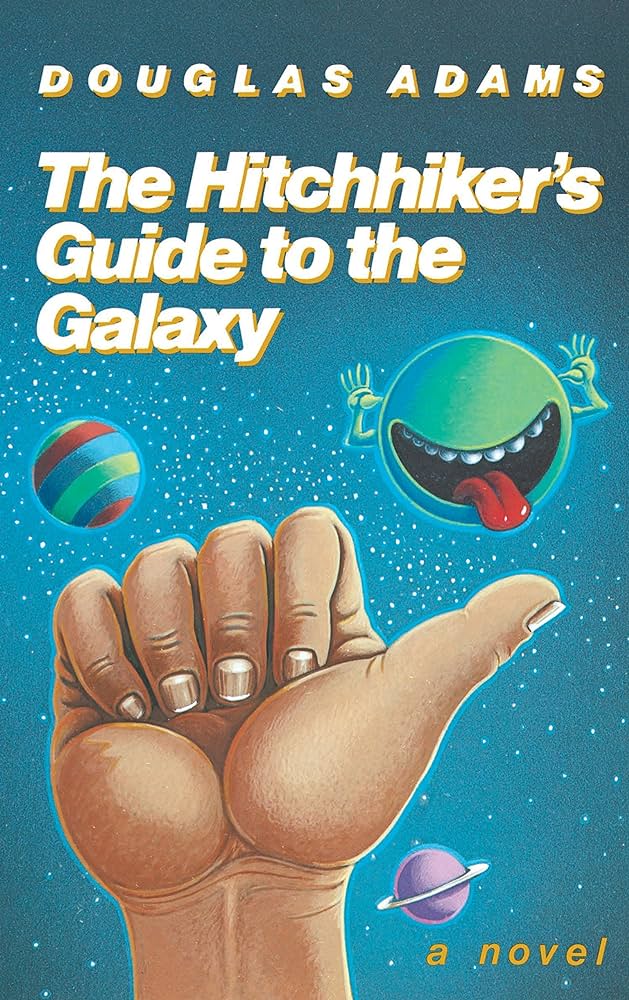Note: If you wish to receive, via e-mail, (1) my weekly newsletter or (2) daily copies of these posts, notify me at rrbates1951@gmail.com and indicate which you would like. I promise not to share your e-mail address with anyone. To unsubscribe, send me a follow-up email.
Tuesday
I continue today with my journey through Angus Fletcher’s Masterworks: The 25 Most Powerful Inventions in the History of Literature. As I’ve noted, Fletcher provides a new spin on certain literary conventions that are taught in virtually every Introduction to Literature course, whether in high school or college. Instead of just pointing them out and getting us to recognize them, however, the Ohio State “professor of story science” examines the role they play in human development. If storytellers of the past “invented” literary conventions, he says, it’s because they play an important role in how humans handle life.
Today’s post summarizes Fletcher’s insights into satire, including parody and ironic detachment. When I was taught these elements in high school, my teachers provided no rationale as to why we should be learning them. Or at any rate, they provided no rationale that would capture the imagination of a teenager, even a teenager who loved literature as much as I did.
Student: Why do I have to know what irony is?
Teacher: Well, because it’s there. That’s what literary study is all about, to understand such concepts. Trust me, it is good for you to know these things.
If, by contrast, we had been shown how satiric irony is a tool we could use to push back against a world that often felt overwhelming, then studying it would have made more sense. A teacher familiar with Fletcher’s book might have been appreciative how, as teenagers, we constantly resorted to sarcasm, a form of irony, as a defense mechanism. Using words that seemed to say one thing but meant something else was the armor we employed to protect our vulnerable selves.
As Fletcher sees it, satire is a “serenity elevator,” and he discusses how it helped Socrates “float above his hurt” in the moments before drinking the hemlock.
The chapter begins with Socrates referring to Aesop as he is surrounded by his students, leading one of them (Phaedo, after whom Plato names the dialogue) to conclude that he was “imitating” the famous author of fables. Aesop couched his observations about humans in animal fables “because he knew that people would get angry if he pointed out their fault directly,” and Plato (according to Fletcher) realized that, in talking about Aesop, Socrates was also talking about himself:
Like Aesop, Socrates had spent his life wryly pointing out people’s follies. And like Aesop, Socrates had tried to avoid people’s wrath by pretending to be a harmless gadfly. So, like Aesop, Socrates had been a covert satirist.
Not all satire is good, Fletcher acknowledges. It was invented “to make us laugh at others,” and he notes that scientific studies have revealed that
laughing at others isn’t always good for our health. It feels good, certainly. It gives us the pleasure of feeling superior. But this pleasure is only momentary. And it can have negative long-term effects: condescension and negative judgments of others…have been correlated with increased anxiety and elevated blood pressure, boosting our risk of heart attacks and strokes.
Self-satire, by contrast, is a different matter. Fletcher sees it as key to Socrates’s calmness in the face of death and again goes into the science:
In the short term, laughing at ourselves releases feel-good neuro-opioids and drops our blood level of cortisol, diminishing stress. And in the long-term, laughing at ourselves reduces anxiety, nurtures emotional resilience, and helps us bond with other people.
All of these were in play in Socrates’s final moments:
Socrates was calm, resilient, and surrounded in his final moments by friends. And Socrates was also resistant to pain, which, as it turns out, is another benefit of laughing at ourselves. Psychologists have found that when we laugh with others (as opposed to laughing at them), our brain releases endorphins that can significantly increase our tolerance for pain. And this analgesic effect, as psychologists have also discovered, can be boosted further by self-irony. Self-irony flips around the perspective-taking network of our frontal brain, making us feel like we’re looking at our self from outside. That detached vantage reduces the felt intensity of our emotional hurts, which is why wry humor is common among soldiers, paramedics and other professionals who deal daily with death. Their irony is quite literally numbing; it’s a mental novocaine for coping with the horrors of war zones and emergency rooms.
Fletcher concludes,
So, by satirizing ourselves, we dose our brain with Socratic up-aboveness and pain-quenching neuro-pharmacologies, while by satirizing others, we drag ourselves down with anxiety and cardiac arrest.
Fletcher ends the chapter with a passage from Douglas Adam’s Hitchhiker’s Guide to the Galaxy (1979) that puts us in our place. When earthling Arthur Dent hears from alien researcher Ford Prefect what the galactic encyclopedia has to say about Earth, he is shocked:
“What? Harmless! Is that all it’s got to say? Harmless! One word!”
Ford shrugged. “Well, there are a hundred billion stars in the Galaxy, and only a limited amount of space in the book’s microprocessors,” he said, “and no one knew much about the Earth, of course.”
“Well, for God’s sake I hope you managed to rectify that a bit.”
“Oh yes, well I managed to transmit a new entry off to the editor. He had to trim it a bit, but it’s still an improvement.”
“And what does it say now?” asked Arthur.
“Mostly harmless.”
To be sure, self-satire is not a magic bullet that will banish fear of death. Literature by itself can’t perform miracles. Still, it’s healthy to be able to step back and realize that (in Fletcher’s words) “the greatest cosmic joke is on us.”


